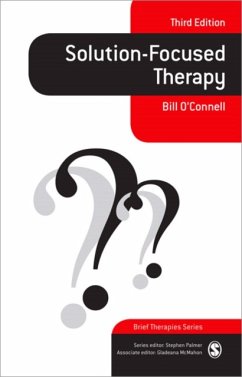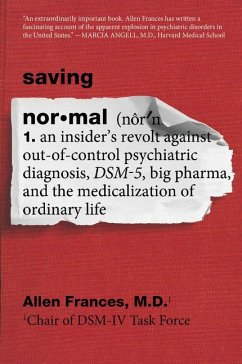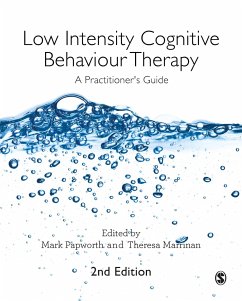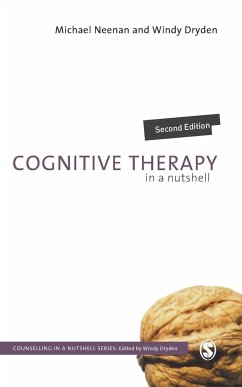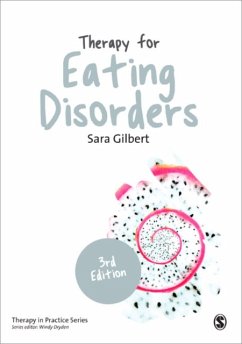
Solution Focused Anxiety Management
A Treatment and Training Manual

PAYBACK Punkte
19 °P sammeln!
Solution Focused Anxiety Management provides the clinician with evidence-based techniques to help clients manage anxiety. Cognitive behavioral and strategic tools, acceptance-based ideas, and mindfulness are introduced from a solution-focused perspective and tailored to client strengths and preferences.The book presents the conceptual foundation, methods, and attitudes of a solution-focused approach. Case examples illustrate how to transform anxiety into the "Four Cs" (courage, coping, appropriate caution and choice). Readers learn how to utilize solution focused anxiety management in single-s...
Solution Focused Anxiety Management provides the clinician with evidence-based techniques to help clients manage anxiety. Cognitive behavioral and strategic tools, acceptance-based ideas, and mindfulness are introduced from a solution-focused perspective and tailored to client strengths and preferences.
The book presents the conceptual foundation, methods, and attitudes of a solution-focused approach. Case examples illustrate how to transform anxiety into the "Four Cs" (courage, coping, appropriate caution and choice). Readers learn how to utilize solution focused anxiety management in single-session, brief, and intermittent therapy as well as in a class setting.
The book additionally includes all materials needed for teaching solution focused anxiety management in a four-session psychoeducational class: complete instructor notes, learner readings, and companion online materials.
Special Features:
Focuses on what works in anxiety management
Presents evidenced based techniques from a solution-focused perspective
Increases effectiveness by utilizing client strengths and preferences
Describes applications in single session, brief, and intermittent therapy
Supplies forms and worksheets for the therapist to use in practice
Features clinically rich case examples
Supplements text with online companion material
Suitable for use as a treatment manual, reference, or course text
The book presents the conceptual foundation, methods, and attitudes of a solution-focused approach. Case examples illustrate how to transform anxiety into the "Four Cs" (courage, coping, appropriate caution and choice). Readers learn how to utilize solution focused anxiety management in single-session, brief, and intermittent therapy as well as in a class setting.
The book additionally includes all materials needed for teaching solution focused anxiety management in a four-session psychoeducational class: complete instructor notes, learner readings, and companion online materials.
Special Features:
Focuses on what works in anxiety management
Presents evidenced based techniques from a solution-focused perspective
Increases effectiveness by utilizing client strengths and preferences
Describes applications in single session, brief, and intermittent therapy
Supplies forms and worksheets for the therapist to use in practice
Features clinically rich case examples
Supplements text with online companion material
Suitable for use as a treatment manual, reference, or course text





